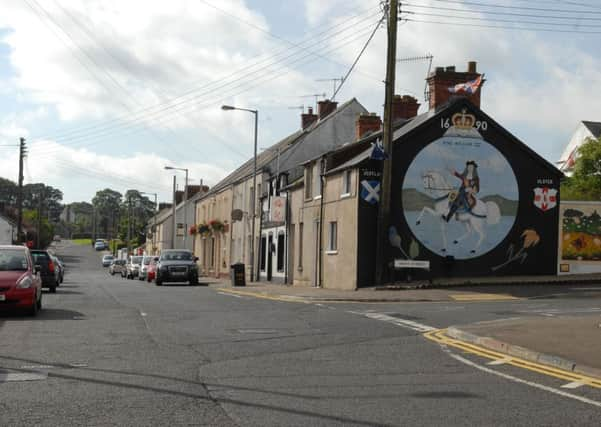Ballycarry tells Haass of attacks on unionist culture and identity


The group has made public extracts from its submission following the close of the initiative, and expressed the view that unionist communities are feeling disillusioned at “the current out workings of the political process”. It also called for strengthening of Ulster Scots links as a means of developing community confidence.
The association said that a starting point for moving to the future was “acceptance of the democratically expressed will of the people that Northern Ireland remain part of the United Kingdom, and that different cultural identities should be respected within the context of a pluralist society”.
Advertisement
Hide AdAdvertisement
Hide AdPointing out that the Ballycarry community is 92 per cent single identity, the submission added: “We believe that, as we can contentedly espouse our Ulster Scots identity within Northern Ireland and also accept that we are an integral part of the United Kingdom, other communities such as those who feel a strong Irish cultural identity, should be encouraged to do the same as part of a pluralist society which respects diversity.
“The association, although largely representing a single identity community, values the diversity of culture and identity in Northern Ireland and has always endeavoured to be inclusive in its activities and events.”
However, Mr Haass was cautioned: “As a group, we would wish to reflect that there is a strong sense within our community of disillusionment with the current outworkings of the political process.
“While only a small portion of people in Ballycarry have taken part in flag protests in the village and surrounding area, there is a much higher proportion who believe that there is an attack on our culture and identity through issues such as the flag vote on Belfast City Council, the republican commemorations in Castlederg and relating to the Shankill bomb, and other similar activity.”
Advertisement
Hide AdAdvertisement
Hide AdThe document continued: “We believe that everyone is entitled to their own political opinions and we respect everyone for the culture, faith and outlook which they espouse, but we believe that there must be an acceptance that Northern Ireland remains part of the United Kingdom by the will of the people, democratically expressed, and are concerned that attempts to undermine the principle of democratic consent will not assist in developing the shared future which we as a community wish to see.
“We are concerned that while the constitutional status of Northern Ireland has been agreed by both London and Dublin as resting in the democratically expressed view of the people of Northern Ireland, we feel that continuing efforts by some to undermine the symbols of the state are causing deep-seated resentment and encouraging division to emerge once again,” the group said.
The Ballycarry association has been to the forefront in seeking to develop links with Scotland over the years, and it hit out at what it sees as a reluctance at all levels to encourage the development of Ulster Scots identity in Northern Ireland.
They told Haass: “As an Ulster Scots community we strongly believe that our culture and identity is not being taken sufficient notice of, and that east-west links being developed would be symbolic and a meaningful cultural signal to communities such as ours.
Advertisement
Hide AdAdvertisement
Hide Ad“The frustrations of finding no support from Government for east-west links will continue to, we believe, cause resentment and alienation from the present political process and this in turn will hinder a shared future and indeed has the potential to provide a tipping balance against it.”
Various means to encourage Ulster Scots communities were included in the submission, such as funding streams and development of an Ulster Scots Academy.
“We have no issue with support for Irish language and culture, but we genuinely and sincerely believe that there has been a reluctance at all levels to encourage the development of our Ulster Scots identity in Northern Ireland, something of which we are keenly aware as one of the early Scottish settlements in 17th century Ulster,” the association stated.
“The past has the potential to be debilitating as we move forward to the future and we believe that the entire community should accept our constitutional position. There is adequate opportunity to safeguard and promote culture within the framework of the United Kingdom. An acceptance of this by everyone will help ensure the future is a positive one for us all,” the submission concluded.